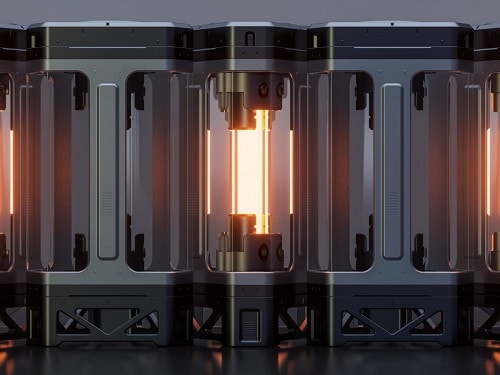With the principle of superabsorption, quantum batteries can be created that charge faster and cost low than renewable energy alternatives

It is expected that by 2040, energy consumption by humans will rise by 28 per cent compared to 2015 with fossil fuel being a major contributor. While the ongoing work on solar technologies promises to bring respite, they are deemed to be unpredictable for providing a continuous energy supply.
In a step toward offering an even better energy source, researchers at the University of Adelaide and their overseas partners have successfully proved the concept of superabsorption, the backbone for making quantum batteries a reality. Upon development, quantum batteries can significantly impact energy capture and storage in renewable energy and miniature electronic devices.
“Quantum batteries, which use quantum mechanical principles to enhance their capabilities, require less charging time the bigger they get,” said Dr James Q. Quach, Ramsay Fellow in the School of Physical Sciences and the Institute for Photonics and Advanced Sensing (IPAS), University of Adelaide.
“It is theoretically possible that the charging power of quantum batteries increases faster than the size of the battery which could allow new ways to speed charging,” he said.
To prove the concept of superabsorption, the team built several wafer-like microcavities of different sizes that contained different numbers of organic molecules, each of which was charged using a laser.
“The active layer of the microcavity contains organic semiconductor materials that store the energy. Underlying the superabsorbing effect of the quantum batteries is the idea that all the molecules act collectively through a property known as quantum superposition,” said Dr Quach. “As the microcavity size increased and the number of molecules increased, the charging time decreased.”
“The concepts that Dr Quach and his team have worked on opens up the possibility of a new class of compact and powerful energy-storing devices,” said the University of Adelaide’s Professor Peter Veitch, Head of the School of Physical Sciences.
After laying the groundwork, the research team’s next step is to develop a fully functioning quantum battery prototype.







